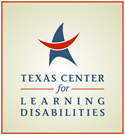Description
Few studies have investigated specific learning disabilities (SLD) identification methods based on the identification of patterns of processing strengths and weaknesses (PSW). The authors investigated the reliability of SLD identification decisions emanating from different achievement test batteries for one method to operationalize the PSW approach: the concordance/discordance model (C/DM; Hale & Fiorello, 2004). Two studies examined the level of agreement for SLD identification decisions between two different simulated, highly correlated achievement test batteries. Study 1 simulated achievement and cognitive data across a wide range of potential latent correlations between an achievement deficit, a cognitive strength, and a cognitive weakness. Latent correlations permitted simulation of case-level data at specified reliabilities for cognitive abilities and two achievement observations. C/DM criteria were applied and resulting SLD classifications from the two achievement test batteries were compared for agreement. Overall agreement and negative agreement were high, but positive agreement was low (0.33-0.59) across all conditions. Study 2 isolated the effects of reduced test reliability on agreement for SLD identification decisions resulting from different test batteries. Reductions in reliability of the two achievement tests resulted in average decreases in positive agreement of 0.13. Conversely, reductions in reliability of cognitive measures resulted in small average increases in positive agreement (0.0-0.06). Findings from both studies are consistent with prior research demonstrating the inherent instability of classifications based on C/DM criteria. Within complex ipsative SLD identification models like the C/DM, small variations in test selection can have deleterious effects on classification reliability.
Citation
Taylor, W. P., Miciak, J., Fletcher, J. M., & Francis, D. J. (2017). Cognitive discrepancy models for specific learning disabilities identification: Simulations of psychometric limitations. Psychological Assessment, 29(4), 446-456.
